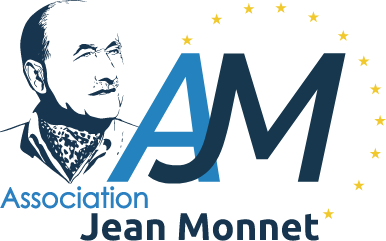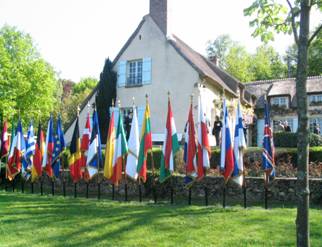The Board of Directors of the Jean Monnet Association organised its annual outlook seminar, the Houjarray Foresight Talks were organised with the support of the Maison Jean Monnet (EP), the European Think Tank CEPS and the European Foreign Affairs Review. This text is the result of the three working groups.
This is a machine-generated translation. Only the original English text is to be used as a reference..
original document
" The Sitution is serious but not hopeless" [1]
Call for a new Action
The European Union risks getting stuck in a rut. Geopolitical stability is waning, several paradigms are fading, and some interdependencies have turned out to be vulnerabilities. The need for more Europe is growing, but internal political paralysis is holding the EU back.
Every time Jean Monnet was confronted with new and difficult problems, his first act was to take stock, to draw up what he called a ‘balance-sheet’ that opened the way to innovative solutions. These balance-sheets were the result of deep study, not of negotiation, and presented an ‘overall view’ of required change, with goals, available resources, and constraints to be observed.
Balance-sheets have recently been drawn up on climate risks by the European Environment Agency, on the internal market by Enrico Letta, on European competitiveness by Mario Draghi, and reports on civilian and defense readiness by Sauli Niinistö and on the future of European defense by the next High Representative and new Commissioner for Defence and Space are forthcoming.
The analysis is crystal clear: Europe has its strengths but is on a dangerous path of decline and vulnerability. In view of the proliferation of reports, the question remains what needs to be prioritized to buck the current trend. The answer is simple: as in life, safety comes first. The EU will need to invest massively to defend its future self and manage global interdependencies to its advantage. To do that, it will need to reconsider its modus operandi to be able to make bold decisions.
Based on the discussions at the Houjarray Foresight Talks 2024, which took place over the weekend in mid-September at the Maison Jean Monnet where the Schuman Declaration was conceived, bringing together a wide range of experts and citizens from all over Europe (beyond the EU), we believe that three priorities deserve the full attention of the new incumbents of the EU institutions.
Firstly, we call on the EU to keep investing in global governance in the spirit of Jean Monnet and, when considering the discussion about European autonomy in sectors of strategic importance, not to forget to look for resilience and interdependencies for structural and lasting value creation. This also means to keep investing in it by strengthening international law and building inclusive partnerships, speaking about the 'international' rules-based order to assuage sensitivities present in several non-Western countries. We further underline that ‘The Global Gateway’ is an attractive instrument to boost sustainable prosperity around the world. Leveraging partnerships, e.g.with like-minded countries in the Indo-Pacific region, the globe’s growing economic center of gravity, will help in restoring the EU’s international standing.
Secondly, In view of the fragility of decision-making within NATO and in order to shore up the European security order and integrate Ukraine and the other candidate countries, the EU will need to become a security provider in its own right. This requires beefing up military muscle, defining a doctrine of deterrence (including nuclear), mainstreaming preparations for enlargement, and applying conditionality in a principled and flexible manner.
Finally, inspired by the original Schuman plan which is a one-point-plan which states that “action must be taken immediately on one limited but decisive point” we must ask ourselves, "What is the most essential resource of economic power today? What has the biggest potential of division and destruction today ? What has the greatest potential of community, sharing, solidarity and prosperity ? " Our answer is clear: Data and talent are the coal and steel of today !
Data is the strategic resource of today. On this, the EU is weak and fragmented. It has no major digital industry and relies mainly on platform infrastructure and suppliers from outside Europe. The EU could be a stronger actor and a standard-setter if it pooled its capacity into a European Digital Community (EDC) which connects citizens. Bringing forward in this way talent, giving talent the means to make sense of the data and imagine solutions, is what may help European countries to answer the many challenges they are facing today and tomorrow.
Therefore, inspired by the success of the First Action Committee for the United States of Europe, which contributed to the establishment of the EEC, the accession of the United Kingdom, the formalization of regular European Council meetings from late 1974 onwards, and the first direct election of the European Parliament, we in the Jean Monnet Association, in close collaboration with other European partners, are working on a new civil society initiative to relaunch an Action Committee with direct participation of politicians and high-level officials in order to push for an acceleration of the European integration process which we consider necessary to confront the challenges we are facing in an effective manner.
Fifty years after the conclusion of the successful ‘Monnet Committee’, whose successor in the 1980s under the leadership of Max Kohnstamm played a notable part in bringing about the Single Market, we believe the time is right for a Third Action Committee to define the next stage of the European Integration process.
Houjarray & Brussels, September 30, 2024.






